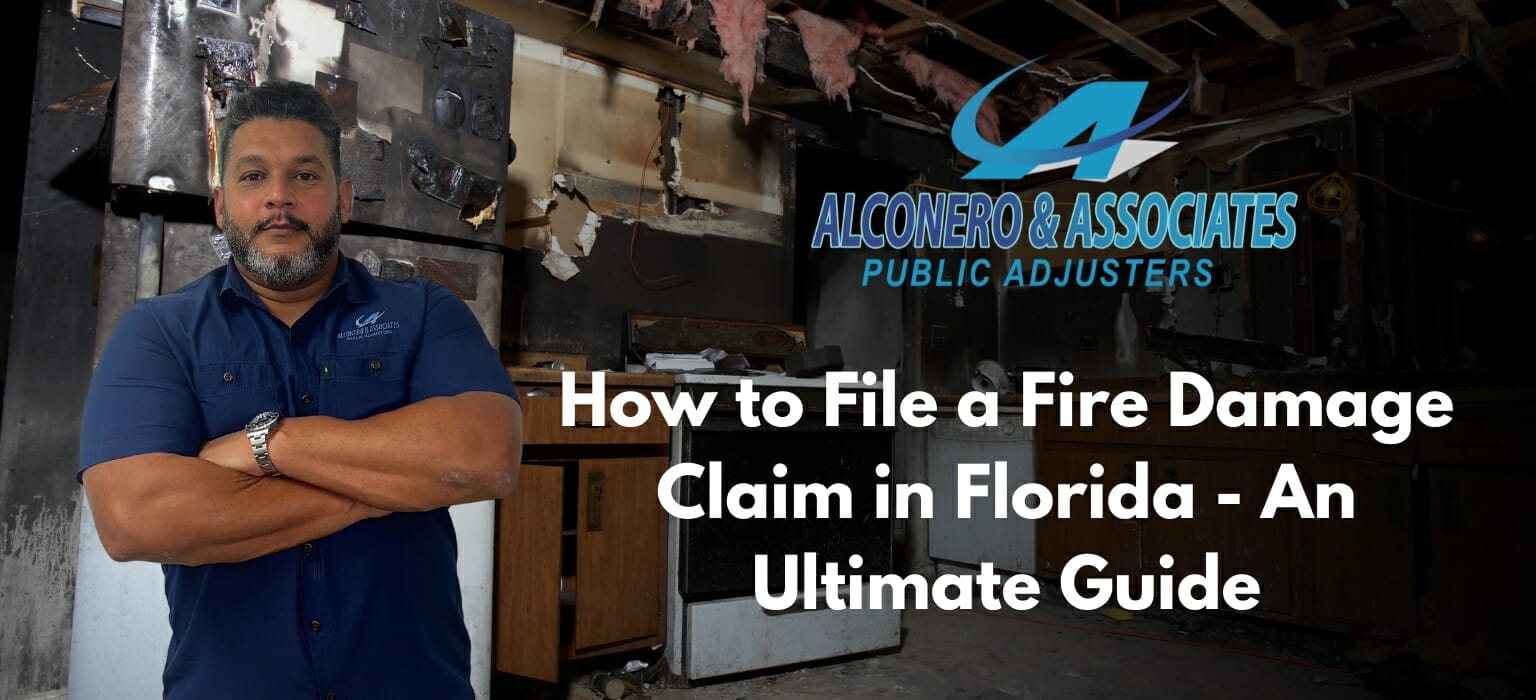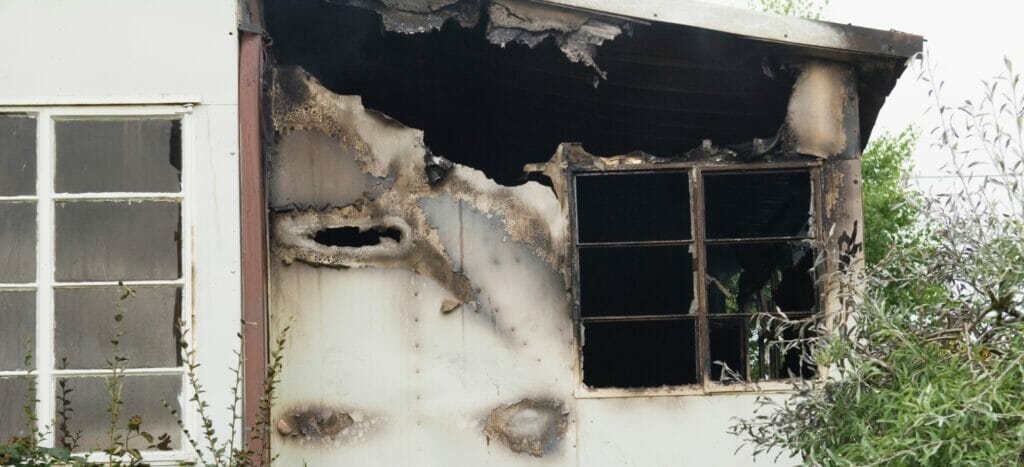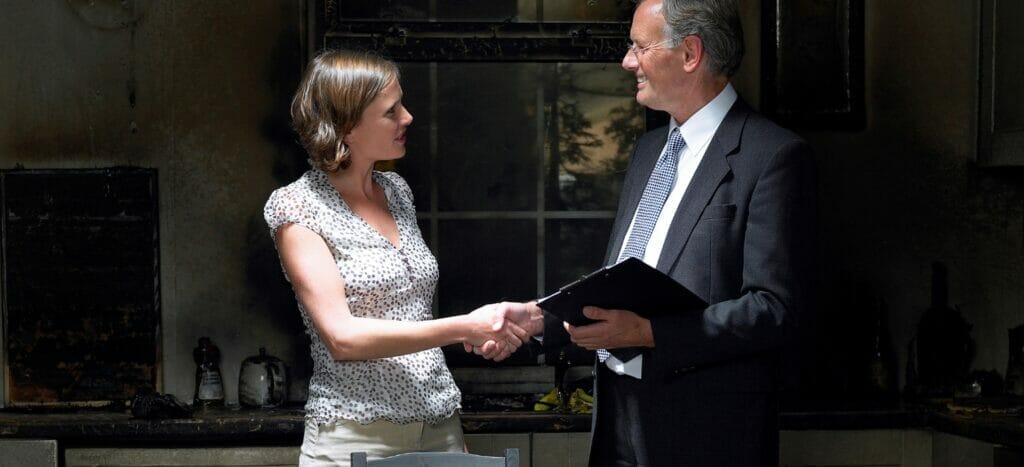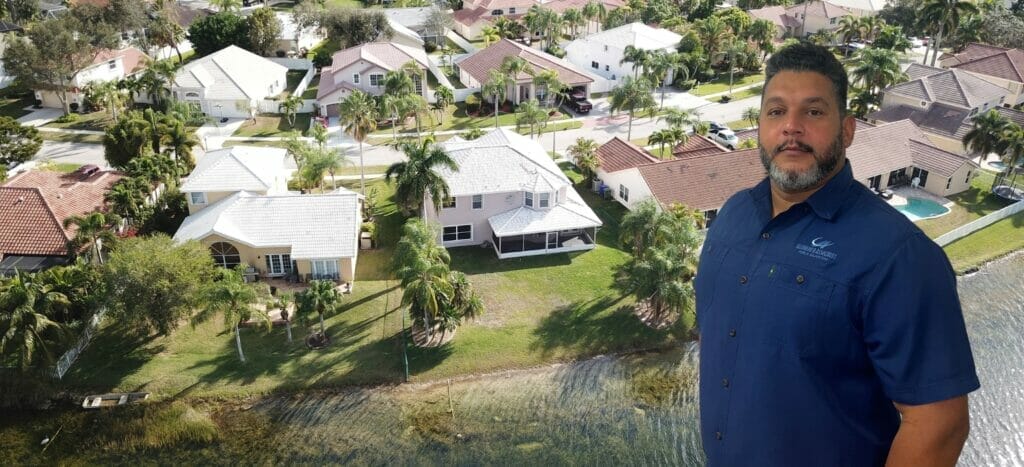
Overview
Fire damage claims in Florida are more than just paperwork; they represent hope, restoration, and a path to normalcy for countless residents who face the aftermath of a blaze. Florida, known for its sun-kissed beaches and vibrant culture, is also no stranger to the challenges that fires can bring. Whether it’s a small kitchen fire or a larger blaze that engulfs a property, understanding the intricacies of fire damage claims is paramount.
In this comprehensive guide, we’ll walk you through the essential steps and considerations when filing a fire damage claim in the Sunshine State. From the immediate actions to take after a fire to the nuances of dealing with insurance companies, we’ve got you covered. We’ll also shed light on common pitfalls to avoid and how to ensure your claim is processed swiftly and fairly.
Moreover, we’ll delve into the invaluable role of public adjusters, like the esteemed team at Alconero and Associates, in guiding policyholders through this often complex journey. With their expertise, you can be assured of a claim process that prioritizes your best interests.
By the end of this article, you’ll be equipped with actionable insights and a clearer understanding of the fire damage claim landscape in Florida. Whether you’re in Miami, Orlando, Tampa, or any corner of this beautiful state, knowledge is power. And in the realm of fire damage claims, it’s the power to rebuild, restore, and move forward with confidence.
How to File a Fire Damage Claim

Experiencing a fire can be traumatic, but taking prompt and informed actions can significantly influence the outcome of your insurance claim. Here’s a step-by-step guide on how to file a fire damage claim in Florida:
- Safety First: Before anything else, ensure the safety of all occupants. Evacuate the premises and call emergency services if the fire is still active.
- Immediate Notification: Once safe, contact your insurance company as soon as possible. The sooner you report the incident, the quicker the claim process can commence.
- Document the Scene: Capture photographs and videos of the affected areas. This visual evidence will be invaluable when detailing the extent of the damage to your insurance provider.
- Secure the Property: To prevent further damage, consider boarding up broken windows or placing tarps on damaged roofs. This not only safeguards your property but also demonstrates to your insurer that you’re taking proactive measures.
- Detail the Loss: Make a comprehensive list of damaged or lost items, including their value. This will aid in determining the compensation you’re entitled to.
- Stay Organized: Keep all fire-related documents, receipts, and correspondence in one place. This will streamline communications with your insurance company.
- Seek Expert Guidance: Consider consulting with a public adjuster, like those at Alconero and Associates, to ensure your claim is accurately represented and you receive a fair settlement.
Remember, while the aftermath of a fire can be overwhelming, taking informed steps can make the difference between a prolonged, challenging recovery and a swift, fair resolution to your claim.
What Information Should Be Included in a Fire Damage Insurance Claim
When filing a fire damage claim, it’s crucial to provide comprehensive and accurate information to your insurance company. This not only expedites the claim process but also ensures you receive the compensation you deserve. Here’s a checklist of essential details to include:
- Policy Details: Start with your insurance policy number and the name of the policyholder. This helps the insurance company quickly locate your file and begin the claim process.
- Date, Time, and Location: Specify when and where the fire occurred. This provides a clear context for the claim and aids in its verification.
- Description of Damage: Detail the extent of the fire damage. Include both structural damages to the property and damages to personal belongings. Be as specific as possible, noting affected rooms, items, and any other pertinent details.
- Personal Contact Information: Provide your current contact details, including phone numbers and email addresses. This ensures the insurance company can reach you promptly for any clarifications or updates.
- Witness Details: If there were any witnesses to the fire, include their contact information. They might provide valuable insights or corroborate your account of the incident.
- Fire Department Report: If available, attach the official report from the fire department. This document offers an objective account of the fire’s cause and extent.
- Additional Documentation: Include any other relevant documents, such as receipts for emergency repairs or accommodations.
By ensuring your claim is thorough and well-documented, you enhance your chances of a smooth claim process and a fair settlement. For more insights on documenting fire damage, Alconero and Associates offer expert guidance.
How to Document Fire Damage for an Insurance Claim

Proper documentation of fire damage is pivotal in substantiating your insurance claim. It provides tangible evidence of the extent and nature of the damage, ensuring that you’re adequately compensated. Here’s a step-by-step guide to effectively document fire damage:
- Photographs and Videos: Begin by capturing clear images and videos of the affected areas. Focus on both wide-angle shots to show the overall damage and close-ups of specific items. Remember, visual evidence is compelling.
- Detailed Inventory: Create a comprehensive list of damaged items. For each item, note its description, purchase date, original cost, and estimated replacement value. This list will be invaluable when determining the claim’s value.
- Save Damaged Items: Resist the urge to immediately discard damaged items. They serve as physical evidence. If safety allows, store them until the claim process concludes.
- Collect Receipts: Gather receipts or bank statements for valuable items, proving their original value. This strengthens your claim and ensures accurate compensation.
- Fire Department Report: Secure a copy of the fire department’s official report. It provides an unbiased account of the fire’s cause, which can be crucial for your claim.
- Witness Statements: If neighbors or bystanders witnessed the fire, their accounts can corroborate your claim. Document their statements and contact information.
- Professional Assessment: Consider hiring professionals, like Alconero and Associates, to assess the damage. Their expertise can provide a more accurate damage valuation.
In essence, meticulous documentation is your ally in the fire damage claim process. It bolsters your claim’s credibility and paves the way for a just settlement.
Processing Time for a Fire Damage Insurance Claim
Understanding the timeline for a fire damage insurance claim is crucial for homeowners. It sets realistic expectations and helps in planning the road to recovery. Let’s explore the typical duration and factors influencing the processing time:
- Standard Processing Time: On average, insurance companies take a few days to a couple of weeks to process a fire damage claim. However, this can vary based on the claim’s complexity and the insurance company’s efficiency.
- Immediate Reporting: Promptly reporting the incident can expedite the process. Insurance companies prioritize claims reported swiftly, recognizing the urgency of the situation.
- Claim Complexity: Simple claims with clear-cut damages and well-documented evidence can be settled faster. In contrast, claims with extensive damages or disputes may require additional time for investigations and negotiations.
- Insurance Company’s Response: While some insurers are quick to dispatch adjusters and process claims, others might take longer. It’s essential to maintain open communication and frequently check for updates.
- External Factors: Events like natural disasters can inundate insurance companies with numerous claims, causing delays. Additionally, holidays and weekends can also impact the processing speed.
- Documentation: Providing comprehensive and accurate documentation, as discussed in our previous section, can significantly reduce processing time.
In conclusion, while the processing time for fire damage claims can vary, being proactive, informed, and prepared can influence a quicker resolution. Remember, patience coupled with persistence ensures that your claim gets the attention it deserves.
Speeding Up the Processing of a Fire Damage Insurance Claim
While the timeline for processing a fire damage claim can vary, there are actionable steps homeowners can take to expedite the process. Here’s how you can ensure a swift resolution:
- Complete Documentation: As emphasized earlier, thorough documentation is paramount. Ensure you have photographs, videos, and a detailed inventory of damaged items. The more comprehensive your evidence, the less back-and-forth with the insurance company.
- Open Communication: Regularly follow up with your insurance company. Prompt responses to their queries and providing any additional information they require can speed up the process.
- Understand Your Policy: Familiarize yourself with your insurance policy’s terms and conditions. Knowing your coverage limits, deductibles, and any exclusions can prevent misunderstandings and disputes.
- Seek Expert Guidance: Consider consulting with professionals, such as public adjusters, who can guide you through the intricacies of the claim process, ensuring nothing is overlooked.
- Mitigate Further Damage: Take necessary measures to prevent additional damage to your property. This not only safeguards your home but also demonstrates responsibility, which insurance companies appreciate.
- Stay Organized: Keep all claim-related documents, correspondence, and records in one place. Being organized can significantly reduce delays when information is requested.
- Be Honest: Always provide accurate information. Misrepresentations can lead to delays, disputes, or even claim denials.
By proactively taking these steps, homeowners can influence a faster claim resolution. Remember, while it’s essential to expedite the process, ensuring the claim is thorough and accurate is equally crucial.
Common Mistakes to Avoid When Filing a Fire Damage Insurance Claim

Navigating the aftermath of a fire can be overwhelming. In the rush to secure a settlement, homeowners often make avoidable errors that can jeopardize their claims. Here are some pitfalls to steer clear of:
- Overlooking Minor Damages: While major damages are evident, minor issues like smoke residue or hidden structural damage can be easily missed. Ensure a thorough inspection to account for all damages.
- Delaying the Claim Process: Time is of the essence. Delaying the claim can not only make damages worse but can also raise suspicions with the insurance company. Act promptly.
- Not Reviewing the Insurance Policy: A common oversight is not thoroughly understanding the policy’s terms. Familiarize yourself with your coverage to avoid surprises later.
- Accepting the First Offer: Insurance companies might offer a quick settlement, but it may not cover all your losses. Always review offers critically and consult with experts like public adjusters if in doubt.
- Failing to Document Everything: From damages to conversations with the insurance company, document every detail. This can be invaluable during disputes.
- Not Securing Damaged Property: Failing to mitigate further damage can be seen as negligence, affecting your claim’s outcome.
- Misrepresenting Facts: Always be truthful. Any discrepancies can lead to claim denials or legal consequences.
By being aware of these common mistakes and approaching the claim process with diligence and honesty, homeowners can ensure they receive the compensation they rightfully deserve.
Tactics Insurance Companies Use to Deny Fire Damage Claims
Insurance companies are businesses, and like all businesses, their primary objective is to maintain profitability. Sometimes, this can lead to tactics that aim to minimize payouts. Here’s what you should be vigilant about:
- Undervaluing the Damage: One of the most common tactics is offering a settlement amount that doesn’t truly reflect the extent of the damage. They might underestimate repair costs or the value of lost items.
- Claiming Pre-existing Damages: Insurers might argue that some of the damage existed before the fire, especially if there’s a lack of documentation proving otherwise.
- Coverage Exclusions: Some policies have specific exclusions, and insurance companies might lean heavily on these clauses to deny claims. For instance, they might argue that a certain type of fire isn’t covered.
- Questioning the Fire’s Origin: If there’s any doubt about how the fire started, insurers might investigate further, potentially leading to delays or denials if they suspect foul play.
- Incomplete Documentation: A lack of thorough documentation can give insurers a reason to question the validity of the claim.
- Policy Technicalities: Missing a premium payment or not adhering to certain policy conditions can be grounds for denial.
To combat these tactics, arm yourself with knowledge and thorough documentation. Consider seeking the expertise of public adjusters who can advocate on your behalf, ensuring you get a fair settlement.
Signs of Bad Faith Insurance Practices
When you’ve paid your premiums and upheld your end of the insurance contract, you expect your insurer to do the same. However, some insurance companies might not always act in good faith. Recognizing the signs of bad faith can empower you to take necessary action:
- Unreasonable Delays: While processing a claim takes time, excessive delays without clear justification can be a red flag. If the insurer is constantly pushing the decision date, it might be a tactic to wear you out.
- Lowball Offers: Offering settlements that are significantly below the actual value of the claim is a common bad faith practice. They’re hoping you’ll accept out of desperation or lack of knowledge.
- Misinterpreting Policy Language: Some insurers might twist the language of the policy to fit their narrative, leading to unjust denials or reduced payouts.
- Failure to Investigate: A proper investigation is crucial for any claim. If the insurer denies your claim without a thorough investigation, it’s a sign of bad faith.
- Withholding Information: If your insurer refuses to provide reasons for claim denial or doesn’t inform you about policy provisions that could benefit you, they’re not acting in good faith.
- Threats or Coercion: Any attempt to intimidate or coerce you into accepting a lower settlement is a clear violation of good faith practices.
If you suspect bad faith practices, don’t hesitate to consult with professionals. Alconero and Associates can guide you through the process, ensuring your rights are protected.
Common Reasons for Fire Damage Claims Denial

Fire damage can be devastating, and the last thing you’d want is to face hurdles in your insurance claim. Understanding the common reasons for claim denials can help you navigate the process more effectively:
- Lack of Evidence: Insurers require concrete evidence to validate claims. Without sufficient documentation, photos, or videos, they might deny your claim.
- Policy Exclusions: Every insurance policy has exclusions. For instance, if the fire was a result of intentional acts or negligence, the claim might be denied.
- Lapsed Policies: If your insurance policy was not active or had lapsed due to non-payment of premiums at the time of the incident, the insurer has grounds to deny the claim.
- Late Reporting: Timeliness is crucial. Delayed reporting can raise suspicions, leading to potential claim denial.
- Misrepresentation: If the insurer finds discrepancies between the actual damage and the reported damage, or if there’s evidence of fraud, the claim can be denied.
- Unmaintained Property: If the property was not maintained, leading to conditions that could cause a fire, insurers might reject the claim.
- Non-disclosure: Failing to disclose certain information, like renovations or the presence of flammable materials, can result in denial.
Facing a denial can be disheartening, but it’s not the end. You have the right to challenge the decision. With the expertise of Alconero and Associates, you can ensure your claim gets the attention and resolution it deserves.
Actions to Take if the Insurance Company Rejects a Fire Damage Claim
Facing a rejected fire damage claim can be overwhelming, especially when you’re already grappling with the aftermath of a fire. However, remember that a denial isn’t the final word. Here’s what you can do to challenge the decision:
- Review the Denial Letter: Insurers are obligated to provide a clear reason for claim denial. Understand their rationale to address it effectively.
- Gather Additional Evidence: Strengthen your claim by collecting more evidence. This might include more detailed photographs, expert evaluations, or witness statements.
- Re-evaluate Your Policy: Ensure you fully understand your policy’s terms, conditions, and exclusions. This will help you counter any misconceptions or misunderstandings.
- Open a Line of Communication: Engage in a dialogue with your insurance company. Sometimes, simple misunderstandings can be resolved through clear communication.
- Consider Mediation: If direct communication doesn’t yield results, consider mediation. A neutral third party can help both sides reach an agreement.
- Hire a Public Adjuster: Public adjusters, like those at Alconero and Associates, can re-evaluate your claim, ensuring it’s both accurate and comprehensive. They’ll advocate on your behalf, ensuring your claim gets a fair review.
- Legal Action: As a last resort, consider legal action. If you believe the insurance company is acting in bad faith, you might have grounds for a lawsuit.
Remember, you’re not alone in this journey. With the right guidance and persistence, you can navigate the complexities of the insurance world and ensure you receive the compensation you rightfully deserve.
Role of a Public Adjuster in Fire Damage Insurance Claims

When disaster strikes, understanding the intricacies of insurance claims can be daunting. That’s where a public adjuster steps in, acting as a beacon of hope for policyholders.
- Difference Between a Public Adjuster and an Insurance Adjuster: An insurance adjuster works for the insurance company, aiming to minimize the company’s payout. In contrast, a public adjuster is an advocate for you, the policyholder. Their primary goal is to ensure you receive the maximum compensation you’re entitled to.
- Benefits of Hiring a Public Adjuster:
- Expertise: Public adjusters have a deep understanding of insurance policies and claim processes. They can decode the complex language of your policy, ensuring you’re not missing out on any entitlements.
- Maximized Settlements: Studies have shown that claims handled by public adjusters result in higher payouts for policyholders.
- Time-saving: With a public adjuster handling your claim, you can focus on rebuilding and recovering.
- Assistance in Documentation and Valuation: Public adjusters, like those at Alconero and Associates, meticulously document every detail of the damage, ensuring nothing is overlooked. They also provide accurate valuations, preventing undervaluation by insurance companies.
- Aiding in the Restoration Process: Beyond the claim, public adjusters can guide you through the restoration process, connecting you with trusted contractors and ensuring repairs meet the highest standards.
In essence, hiring a public adjuster is like having a seasoned guide by your side, navigating the labyrinth of insurance claims. Their expertise can be the difference between an underwhelming settlement and the just compensation you deserve.
Questions to Ask a Public Adjuster Before Hiring
Selecting the right public adjuster can make a significant difference in your claim’s outcome. Before entrusting someone with your fire damage claim, arm yourself with these pivotal questions:
- Experience and Expertise:
- “How many years have you been a licensed public adjuster?”
- “Can you provide examples of similar fire damage claims you’ve handled?”
- Fee Structure:
- “How do you charge for your services? Is it a percentage of the claim or a flat fee?”
- “Are there any additional costs or fees I should be aware of?”
- Previous Client Testimonials:
- “Can you provide references or testimonials from past clients?”
- “Have you handled claims in my specific area or neighborhood?”
- Claim Handling Process:
- “How will you keep me updated throughout the claim process?”
- “What is the typical timeline for resolving a claim like mine?”
- Team and Resources:
- “Do you work alone, or is there a team supporting you?”
- “What resources or tools do you use to assess and document damage?”
- Resolution of Disputes:
- “If there’s a disagreement with the insurance company, how do you handle it?”
- “Have you ever had to take a claim to court or arbitration?”
By asking these questions, you ensure that the public adjuster you hire is not only qualified but also the right fit for your specific needs. Remember, your claim’s success hinges on the expertise and dedication of the adjuster you choose.
Finding a Reputable Public Adjuster for a Fire Damage Insurance Claim
Navigating the aftermath of a fire can be overwhelming. Yet, amidst the chaos, choosing a reputable public adjuster can be your beacon of hope. Here’s a roadmap to ensure you’re partnering with the best:
- Research and Reviews:
- Begin with a simple online search. Websites like the National Association of Public Insurance Adjusters can be a good starting point.
- Dive deep into online reviews. Platforms like Google, Yelp, and the Better Business Bureau offer invaluable insights from past clients.
- Recommendations and Referrals:
- Word of mouth remains a powerful tool. Ask friends, family, or neighbors who’ve been through similar situations.
- Local contractors or real estate professionals can also provide referrals, given their frequent interactions with adjusters.
- Credentials Check:
- Ensure the adjuster is licensed in Florida. This guarantees they adhere to state regulations and standards.
- Inquire about any professional affiliations or certifications. These often indicate a commitment to ongoing education and ethical practices.
- Personal Interaction:
- Schedule a face-to-face meeting or a virtual consultation. This allows you to gauge their professionalism, empathy, and communication skills firsthand.
- Trust your instincts. If something feels off, it probably is.
- Transparency:
- A reputable adjuster will be upfront about their fees, the services they offer, and any potential conflicts of interest.
By following these steps, you’ll be well on your way to finding a public adjuster who not only champions your claim but also provides peace of mind. Remember, the right adjuster can be the difference between a fair settlement and a prolonged battle.
Alconero And Associates Public Adjusters in Florida for Fire Damage Claims

In the vast landscape of public adjusters in Florida, one name stands out for its unwavering commitment to policyholders: Alconero and Associates. Here’s why they are the go-to choice for fire damage claims:
- Proven Track Record:
- With years of experience under their belt, Alconero and Associates have successfully represented countless Floridians, ensuring they receive the compensation they rightfully deserve. Their portfolio speaks volumes about their expertise.
- Comprehensive Services:
- From fire damage to smoke damage claims, their team is equipped to handle a wide range of insurance claims, ensuring you have a one-stop solution.
- Client-Centric Approach:
- Alconero and Associates prioritize their clients. Their transparent communication, coupled with a deep understanding of the emotional turmoil post-fire, makes them a trusted partner in your recovery journey.
- Areas Covered:
- Educational Resources:
- They believe in empowering their clients. Their FAQs and informative articles, such as the difference between independent and public adjusters, provide valuable insights to policyholders.
In the aftermath of a fire, you need a reliable ally. Alconero and Associates are not just public adjusters; they are advocates who fight for your rights, ensuring you rebuild and recover with confidence.
Frequently Asked Questions (FAQs)
- What immediate steps should I take after experiencing fire damage in Florida?
- After ensuring everyone’s safety, contact emergency services, document the damage through photos and videos, and report the incident to your insurance company promptly.
- How do I document fire damage for my insurance claim?
- Take clear photographs and videos of the affected areas, list down damaged items with their estimated value, and gather any relevant receipts or warranties.
- How long does it typically take for a fire damage insurance claim to be processed in Florida?
- The processing time can vary, but it typically ranges from a few weeks to several months, depending on the extent of the damage and the thoroughness of your documentation.
- What are some common mistakes to avoid when filing a fire damage insurance claim?
- Overlooking minor damages, delaying the claim process, and not reviewing your insurance policy in detail are some pitfalls to avoid.
- How can I identify bad faith insurance practices?
- Signs include unnecessary delays in claim processing, offering unreasonably low settlements, and misinterpreting policy language to the insurer’s advantage.
- What should I do if my fire damage claim is denied?
- Review the reason for denial, gather additional evidence if needed, and consider seeking legal advice or hiring a public adjuster to represent your case.
- How can a public adjuster assist me with my fire damage claim?
- A public adjuster represents the policyholder, helps with documentation, provides accurate damage valuation, and negotiates with the insurance company to ensure a fair settlement.
- Why should I consider Alconero and Associates for my fire damage claim in Florida?
- Alconero and Associates have a proven track record, offer comprehensive services, prioritize their clients, and cover a wide range of areas in Florida, making them a trusted choice for fire damage claims.
Key Takeaways
| Topic | Key Points |
|---|---|
| Fire Damage Claim Process | – Understand the importance of the process in Florida. Timely reporting and documentation are crucial. |
| Information for Claims | – Include policy details, date, time, location, and a description of the damage. Provide personal contact information. |
| Documentation | – Use photographs and videos to capture damage. List all damaged items with their estimated value. |
| Processing Time | – Claims can take a few weeks to several months. Factors include damage extent and documentation quality. |
| Speeding Up Claims | – Provide accurate documentation. Maintain proactive communication with the insurer. |
| Common Mistakes | – Avoid overlooking minor damages and delaying the claim process. Always review the insurance policy thoroughly. |
| Insurance Company Tactics | – Be aware of undervaluing damage, claiming pre-existing damages, and coverage exclusions. |
| Bad Faith Practices | – Signs include unnecessary delays and unreasonably low settlement offers. |
| Claim Denial Reasons | – Common reasons include lack of evidence, policy exclusions, and lapsed policies. |
| Actions Post-Denial | – Review denial reasons, gather more evidence, and consider legal action. |
| Role of Public Adjusters | – They represent policyholders, assist in documentation, and negotiate with insurers. |
| Choosing a Public Adjuster | – Consider experience, fee structure, and client testimonials. Alconero and Associates is a trusted choice in Florida. |
